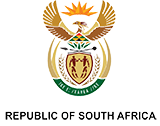If we are to ensure that, within the next decade, every 10 year old will be able to read for meaning, we will need to mobilise the entire nation behind a massive reading campaign.
Early reading is the basic foundation that determines a child’s educational progress, through school, through higher education and into the workplace.
President Cyril Ramaphosa, SONA 2019
It is through initiatives like the National Reading Coalition that we will be able to coordinate this national effort [to ensure that children can read].
President Cyril Ramaphosa, SONA 2019
The NRC was launched in February 2019 by the Department of Basic Education to develop and implement various initiatives to address the national reading challenge and respond to President Ramaphosa’s call to start “the reading revolution”.
The NRC’s national proposed plan recognises six areas deemed critical in the improvement of reading, including initial teacher preparation, access to relevant resources, community support, continuous professional development, policy, research and evaluation.
Teacher training
All foundation and intermediate phase teachers are to be trained to teach reading in English and the African languages, and we are training and deploying a cohort of experienced coaches to provide high quality on-site support to teachers.
President Cyril Ramaphosa, SONA 2019
We are implementing the Early Grade Reading Programme, which consists of an integrated package of lesson plans, additional reading materials and professional support to Foundation Phase teachers.
President Cyril Ramaphosa, SONA 2019
Delivering his SONA in Parliament, President Cyril Ramaphosa noted that the programme forms part of the broader efforts to strengthen the basic education system by empowering school leadership teams, improving the capabilities of teachers, and ensuring a more consistent measurement of progress for Grades 3, 6 and 9.
We also have to prepare our young people for the jobs of the future. This is why we are introducing subjects like coding and data analytics at a primary school level.
President Cyril Ramaphosa, SONA 2019
In April 2019, the Deputy Minister of Basic Education, Enver Surty, noted that South Africa was already introducing coding as a subject in South African schools, with 43,774 teachers already trained in computer skills.
Coding as a subject will be piloted at 1,000 schools across five provinces starting in the 2020 school year. Plans are also in the works to introduce a robotics curriculum from Grade R-9.
Government will be training teachers for the new coding curricula from June to September 2019. Minister Surty added that the University of South Africa (UNISA) had agreed to make their 24 ICT laboratories throughout the country available for the training of 72,000 teachers in coding.
The new curricula will provide learners with an understanding of coding and robotics and will develop their skills and competencies to prepare them for the 4th Industrial Revolution.


